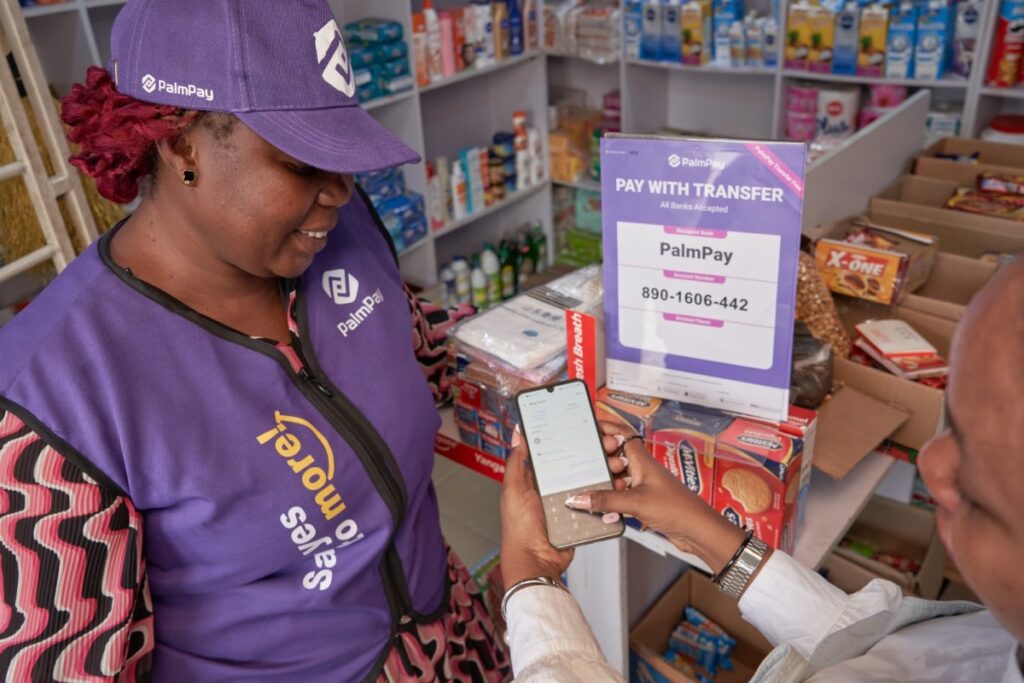PalmPay Fintech in Talks to Raise $50-100 Million in Series B Funding Round
In recent news, African digital bank fintech PalmPay is currently in discussions to secure between $50 million and $100 million in a Series B funding round, as reported by various sources familiar with the matter.
Although the exact valuation PalmPay is aiming for remains undisclosed, its previous funding round in 2021 positioned it as one of the most valuable startups on the continent, falling just short of unicorn status.
Financial Growth and Expansion Plans
While PalmPay has chosen not to comment on the specifics of the fundraising efforts, a spokesperson has confirmed that the six-year-old fintech company is in a strong financial position and is actively exploring opportunities for growth.
Having raised close to $140 million through its seed and Series A rounds, PalmPay has now achieved profitability, according to insiders familiar with the company’s financials.
The anticipated capital injection, which is expected to comprise both equity and debt, will be instrumental in driving PalmPay’s expansion initiatives. These include solidifying its presence in Nigeria, expanding its newer business-centric offerings, and introducing its products to new markets across Africa and Asia.
Impressive Milestones and Revenue Surge
Recently, PalmPay announced that it had reached a milestone of 15 million daily transactions, attributed to its user base of 35 million registered users. These transactions now accumulate to “tens of billions of dollars” annually, as per the company’s reports.
Moreover, PalmPay’s revenue has experienced significant growth, with the Financial Times reporting a revenue of $64 million in 2023. Insiders familiar with the company state that this figure has more than doubled since then.
Revolutionizing Banking in Africa
Established in 2019 in Nigeria, PalmPay identified a gap in the market where over half of the country’s adults were unbanked. Traditional banks primarily catered to salaried or formal-sector clients, leaving out a large portion of mass-market users.
PalmPay seized the opportunity to disrupt the traditional banking model by creating a digital bank tailored to the realities of Africa’s informal economy. The company introduced an app with instant onboarding, zero transfer fees, and a diverse range of services such as credit, savings, insurance, and bill payments specifically designed for underbanked consumers and small businesses.
Unlike relying solely on digital acquisition, PalmPay established a vast network of over 1 million small businesses and agent merchants. These entities now serve over 10 million customers monthly through the PalmPay Business app and point-of-sale devices, offering cash-in and cash-out services.
Strategic Partnerships and Market Expansion
PalmPay claims to process more transactions than any traditional bank in Nigeria, with 25% of its users stating that it was their first financial account. This figure jumps to 60% among borrowers utilizing PalmPay’s credit products, which are provided in collaboration with licensed lenders.
A key component of PalmPay’s distribution strategy stems from its partnership with Transsion, a leading Chinese phone manufacturer dominating smartphone sales in Africa. Through this collaboration, PalmPay’s app comes pre-installed on select financed smartphones, aiding in user acquisition and engagement.
Having solidified its position as one of the most widely used fintech apps in Nigeria, PalmPay is now gearing up to replicate its success in new international markets. The neobanking platform has expanded to Tanzania and Bangladesh, marking its first venture outside Africa, with plans to introduce device financing and consumer credit before offering additional services.
Furthermore, PalmPay intends to introduce device financing in Nigeria, while also exploring collaborations with more original equipment manufacturers (OEMs) alongside its strategic partner Transsion.
Continued Innovation and Cross-Border Solutions
On the commercial front, PalmPay offers cross-border payment solutions for merchants seeking to send and receive payments across Africa through a single API. This new business feature, currently operational in Nigeria, Kenya, and Tanzania, processes “hundreds of millions of dollars monthly,” according to the company’s spokesperson.

